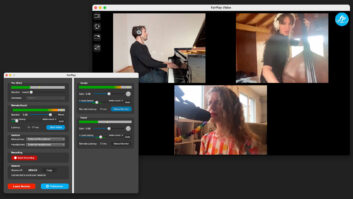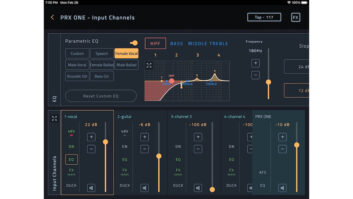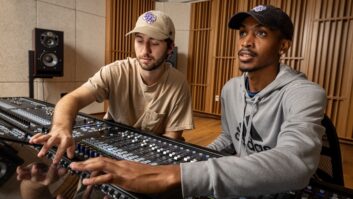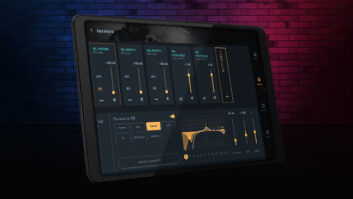AES Convention A Catalyst For Innovative Plug-In’s Scientific Role
ITHACA, NY: At the Cornell University Lab of Ornithology’s Macaulay Library things can get a little wild. As the world’s largest scientific archive of biodiversity audio and video recordings, this collection encompasses over 195,000 sound and 60,000 video clips. Curator of Audio, Greg Budney and Supervising Audio Engineer Bill McQuay routinely investigate new tools to aid their research. Most recently they have been experimenting with the Pro-Codec, an audio plug-in created by UK-based Sonnox and Germany’s Fraunhofer (developer of MP3 technology).
Introduced last year, the Pro-Codec is a groundbreaking plug-in designed to revolutionize the process of mastering audio for online distribution. By enabling audio engineers to precisely audition codecs in real time, the Pro-Codec eliminates the prolonged cycle of encoding a music mix to MP3/AAC, previewing and tweaking it and then returning to their starting point to re-render. The abridged process frees the engineer to focus on producing a compensated, optimized mix.
Budney and McQuay first learned of the Pro-Codec while attending last year’s Audio Engineering Society Convention in NYC. “I spoke to the Fraunhover folks about our need to demonstrate appropriate and inappropriate uses of MP3 sound files to the scientific research community, and they directed us to the Sonnox booth,” McQuay says.
“We’re a resource for scientists studying evolutionary relationships between animals,” Budney explains. “Many species have genetically based sounds. By examining the vocalizations of a group of animals, their sounds can provide a window into their evolutionary relationships. Motion picture producers also use our collection,” he adds. “Skywalker Sound routinely contacts the Library for creative fodder, sometimes for sounds to build upon, sometimes for accurate natural world sounds.”
“We are trying to demonstrate to the scientific community that there may be appropriate and inappropriate uses for a lossy codec like MP3, which is based on human perception, but is not necessarily the perception of other species. In many cases we don’t know the perceptual limitations of these species – what frequencies they do and do not find important or encoded with meaningful information. We want to demonstrate that MP3 may be valuable for applications such as auditioning sounds, but may not be for serious sound analysis. The Pro-Codec provides a simple interface that allows us to consider what information in the frequency and time domains are being eliminated by the lossy MP3 codec,” McQuay adds.
McQuay and Budney want to assure scientists that they are listening to and analyzing sound with the greatest amount of content – audio content which might be critical to the species they are studying. “Scientists are really hip to spectrograms, they love those things,” McQuay says. “The Pro-codec’s real time FFT display graphically illustrates exactly what is happening to sound being processed by the MP3 or another lossy codec. And, the Pro-codec’s ability to make the sounds being eliminated audible helps to reinforce its lossy nature. Our hypothesis is that for serious sound analysis, the use of MP3 or other lossy formats may not be the appropriate choice.”
Research currently underway at the Macaulay Library will eventually be published in a scientific journal, pending the outcome of McQuay’s analysis. Budney points to the Library’s webpages, which provide technical support to researchers across a broad range of disciplines. “They might be marine mammalogists, ornithologists, or individuals studying animal behavior or bioacoustic phenomenon,” he says. “The library is recognized as a source of solid technical information by researchers around the globe. We’ll also be posting this information on our own webpages soon.”
Photo cap: Cornell Lab Curator of Audio, Greg Budney (left) and
Supervising Audio Engineer Bill McQuay
###
For information on Sonnox Oxford Plugins please visit: www.sonnox.com







